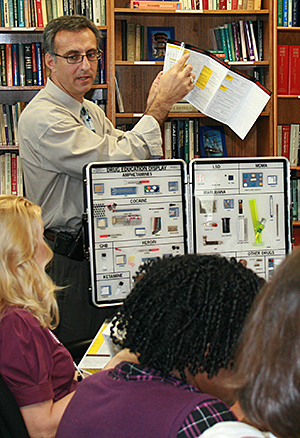MD3 Curriculum Overview
MD3 curriculum includes didactic and practice components. Residents will participate in a variety of training methods in order to maximize knowledge and skill in practicing SBIRT. Our training tools include online modules, training videos, role play scenarios, and standardized patients for practice and evaluation.
SBIRT Training
1. Slide Sets
MD3 slide sets provide background knowledge on the rationale for the use of SBIRT in primary care settings, effective screening methods and primary and secondary screening tools, brief intervention steps and background on motivational enhancement techniques and the process of change, and options for referral to treatment.
These slide sets can be covered with residents in a lecture format or they can be viewed online in our “Online Modules” section of the website prior to in-person training.
2. Training Videos
MD3 Training videos demonstrating screening, brief intervention, and referral to treatment are utilized to clarify the process and technique for each component of SBIRT. These videos can be shown during a lecture or can be viewed for further practice on our website individually or in a small group setting.
Training videos provide an opportunity for questions, clarification, and discussion about the best practices and challenges of SBIRT. To view all MD3 training videos on screening and examples of brief intervention for alcohol use, marijuana use, and misuse of prescription medication, see the “Training Videos” section of this website.
3. Role play
As part of training, residents will be asked to implement SBIRT with standardized patients, actual patients, and/or use of SBIRT and motivational enhancement techniques in patient vignettes. Debriefing with our instructors will be held after these encounters to allow time for the residents to ask questions and for the instructor to provide feedback and clarification.
4. Patient Tools/Resources
All residents will receive an MD3 pocket card that includes screening tools, guidelines for providing a brief intervention, assessment of alcohol and drug quantities, information and street names for commonly used substances, alcohol and opioid withdrawal symptoms and treatment, substance abuse patient tools, and Maryland treatment resource information.
Didactic Lecture Series
Didactic lectures will be delivered with power point slide sets that will also be available online. See the Didactic Lecture Series page for the lecture topics and descriptions.

